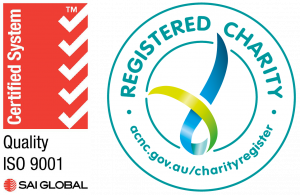Service while you wait: using students to support clients before formal engagement
Pictured: Q Health.
It is a difficult reality for any health service that there is often a gap between a client being allocated to a service and the first engagement that results. This can be due to many contributing factors such as available funding and workforce. Resources are not infinite; things take time.
Add your title here
This is the text area for this paragraph. To change it, simply click and start typing. Once you've added your content, you can customize its design by using different colors, fonts, font sizes and bullets. Just highlight the words you want to design and choose from the various options in the text editing bar.
This is the text area for this paragraph. To change it, simply click and start typing. After adding your content, you can customize it.
For some client or patient cohorts, this period can be challenging. The absence of support – even if it will be in place soon – leaves open the possibility of relapse or crisis.
An innovative program designed and rolled out by Merri Health through its LGBTIQA+ Q Health service – funded by NWMPHN – represents a positive and cost-effective way to solve the issue.
Q Health is a free counselling and support service for people from LGBTIQA+ communities who would like to talk about the concerns or impacts of their alcohol and drug use in a confidential, non-judgmental and queer-affirmative space.
The service – like any other – has capacity limits, which means new clients have to wait before a counsellor becomes available. The average wait time is 4 to 6 weeks.
To fill this gap, Merri Health and NWMPHN collaborated to design and enact an “active holding” service.
The benefits to clients are clear …
The service involves social work and counselling students drawn from Melbourne’s universities and other tertiary institutions to support clients on the waiting list.
Supervised by Merri Health’s Q Health team, the students not only assist with case management and service demand, they also – and most importantly – keep clients in direct contact with the program, providing continuing support and never letting at-risk people imagine that they have been forgotten. They can also link clients with alternative support options while they wait and, in some urgent scenarios, escalate their level of care.
The benefits to clients are clear, but so too are the benefits for the students, who gain valuable insight into the type of service provision, discussion and interactions that will be central to their careers in primary care.
“Our active holding results in shorter wait times and earlier access to practical supports for clients,” says Kathryn Buxton, Merri Health’s Manager, Counselling and Wellbeing.
“It also supports the learning and development of future alcohol and other drug workforces, including deepening student understanding of the community health sector.”
All up, she says, the program creates a culture of mutual learning – with students and staff gaining broader insights.
“Many of the students who come to us on placement are from diverse backgrounds and bring with them lived experience and knowledge of cultural diversity and intersectionality. It is a great learning experience all round – and delivers a measure of sustained support for our clients that is incredibly valuable!”
Our STORIES
Keep up to date with the latest news and publications, funding opportunities, careers and upcoming events at NWMPHN.

